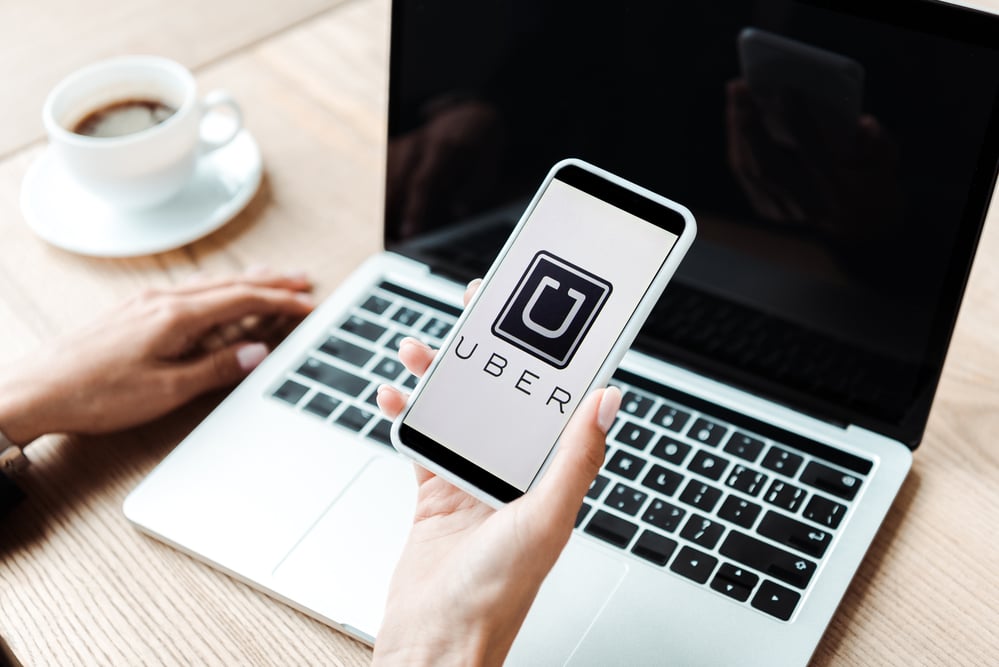
If at first, you don’t succeed, try again. That seems to be the thinking of Uber (NYSE:UBER) management. After failing in its attempt to buy GrubHub (NYSE:GRUB), the company has now set its sights on privately owned Postmates with a proposed $2.6 billion deal.
And the market is responding well. Uber is up over 5% in midday trading. In fact, Uber stock has a chance to close at a price that will give the company yet another attempt at staying in the green in 2020. Since the stock sold off in March, the company has turned positive on a number of occasions. Each time, it has failed to hold the gain.
Unfortunately for investors, I see history repeating itself. Uber is based on a great, but not defensible idea. And that is creating multiple headwinds for the business including increasing competition, labor strife, and now the uncertainty of how much traffic will return when the pandemic ends.
Is Uber Trying to Become a Jack of All Trades?
At first glance, the offer for Postmates makes a lot of sense. Postmates is one of the “big 4” in the food delivery sector along with DoorDash, GrubHub and Uber Eats. In a sector where margins can be razor-thin, it makes sense to go for growth through acquisition.
But it does raise the question of exactly what business Uber wants to be in. And if you, or they, answer all of the above that’s a cop-out. However, it may accurately reflect the writing on the wall for Uber and other ride-hailing services.
It Was Such a Simple Idea Until Money Got Involved
Remember that Uber defines itself as a core. It provides a service for its customers. In this case, an app that allows them to get a car and driver. It was simple enough when drivers were looking at driving for the company as being a side hustle.
Then reality, and human nature, set in. it didn’t take long for drivers to realize they carried all the risk without the financial payoff. For Uber to work, its drivers have to work as independent contractors.
Good for Uber. Not so good for the drivers.
If a driver was savvy enough to set themselves up as a limited liability corporation (LLC) they had some protection. Otherwise, they could lose all their assets. That has led to AB5, a California law that requires Uber and other ride-hailing companies such as Lyft (NASDAQ:LYFT) to classify drivers as employees.
Good for drivers. Not so much for Uber.
The Novel Coronavirus Tanked All Ride-Hailing Companies
But all of that drama took a back seat to a more existential threat to Uber’s business. The company saw unprecedented demand destruction from the novel coronavirus. Drivers are saying that even with food deliveries, their business was down up to 80% at the depth of the pandemic. I would imagine that even with recovering some volume, business is still lean.
That would be unfortunate if driving for Uber were merely a part-time gig. When it’s the primary source of your income, it’s devastating. And that’s not the only problem for Uber. The question is what does the future look like. Uber has already cut over 6,000 jobs in an effort to cut expenses by $1 billion.
A recent article in Bloomberg suggests that ride-hailing suddenly feels like a less hygienic alternative to vehicle ownership. And that was confirmed by Consumer Reports who interviewed Harry Campbell, founder and CEO of “The Rideshare Guy”. Campbell says that having drivers responsible for cleaning their own vehicles means the riders don’t have the same assurance that the car has actually been cleaned. “Some drivers are doing a great job, but others are not,” says Campbell.
Campbell also points out that some drivers who he spoke to said they have limited or no access to the personal protective equipment (PPE) that they are supposed to have.
I’m Staying Away From Uber and Suggest You Do Too
Uber simply has too many obstacles to overcome in its core ride-hailing business, a business that will look very different and perhaps much less profitable in a post-pandemic world. There’s also a chance that the deal with Postmates may not go through.
For its part, Postmates is still deciding whether to accept Uber’s offer or whether to go ahead with its own initial public offering (IPO).
Before you make your next trade, you'll want to hear this.
MarketBeat keeps track of Wall Street's top-rated and best performing research analysts and the stocks they recommend to their clients on a daily basis.
Our team has identified the five stocks that top analysts are quietly whispering to their clients to buy now before the broader market catches on... and none of the big name stocks were on the list.
They believe these five stocks are the five best companies for investors to buy now...
See The Five Stocks Here
As the AI market heats up, investors who have a vision for artificial intelligence have the potential to see real returns. Learn about the industry as a whole as well as seven companies that are getting work done with the power of AI.
Get This Free Report